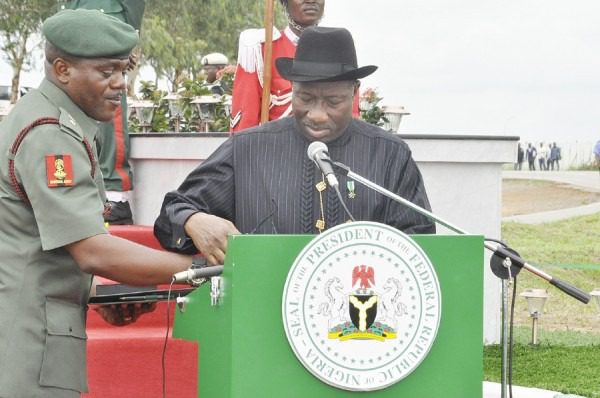Political Issues
Uniqueness of Nigeria and the mitigating factors of her disintegration.

We are who we think we are not and we are not who we think we are! When many are calling for the disintegration of Nigeria I as a good listener usually wonder at the surface nature of their argument. They usually present an off the fact argument in trying to defend their sentimental positions. They fail to understand Nigeria as a nation and as a people not because Nigeria is too complex for them to understand but because they choose to remain sentimental in judgment for personal gratifications.
Many people, Nigerians and foreigners alike (not forgetting Ghaddafi, and some private agency of the United States of America) argued that Nigeria should and will balkanize. We as citizens towing the path of convenience sometimes make the same projections because we argued from inside the box of necessity, saying this country should divide. But the question here is from where to where?
Those who believe Nigeria will separate sees only what they want to see, they hear only what they want to hear and say what their supporters want to hear only to reflect the prevailing trend of events! Nigeria is a complex society, more complex than the defunct USSR, more complex than Somalia and other countries that sees successions and disintegration in modern day statehood.
Our people are unique and diverse in culture, tradition, religion and political determination. For a Nigerian to say I am a southerner or to say I am a northerner is not enough to create an identity, qualify for separation. To say we, the Christians, or they the Muslims, is still far a mark to create differences amongst us to the point of separation. Our individual identity transcends regional blocs, overshadowed our religious beliefs, and entangled our cultural orientations.
Nigerians are like the onions, within every layer there is another layer, and above every layer there is different layer. We cannot stand separately and away as different from others. Our identity as a people dwells within different layers and levels without any clear cut isolation as a separate or different entity. We are embedded in a cluster of identities as a people.
Our uniqueness also makes it impossible to determine who are the most populated in terms of ethnic or religious affiliations. Threading that path is futility, for within whom we think we are lies a layer that binds us with those we think are not part of us. A Yoruba Muslim, though a southerner shares a common religion with a Hausa man who is a northerner. In the same vain a Christian Igbo man , though an easterner also shares one religious belief with many other pockets of different ethnic groups spread across the north who are Christians, attending the same church, sharing the same faith and calling on the same God.
The topography and geography of Nigeria is far beyond human artificial creation. The two great rivers Niger and Benue naturally provides what other proponents of nationhood may call a natural border. This could have been a perfect trilogy of identity for Nigerians, North, East and West. But the forces of history which tend to move the wheel of human civilization bestowed upon these topography different and more complex ethnic, cultural and religious affinities. This situation practically breaks any form of agitations on such natural borders. But how!
If Nigeria will break, will it be on religion differences? Will it be on regional divides, will it be on ethnic aspirations? Or is it going to be just political or economical? Then where is the common political ideology that defines a given set of people? Where is the economy buoyancy that articulates a region? And what are the ethnic lines upon which these boundaries will be drawn
Many say Nigeria WILL break, others says Nigeria SHOULD break, and some says Nigeria MUST break. Whichever way we see or say it Nigeria will, and shall remain indivisible. We are bonded together by the two rivers coming from Niger and Benue joined in Lokoja and knotted in the delta. Below the Benue River overlapped part of the political north, above the river Niger also overlapped the Yoruba culture. And in the long run down to the delta, the Igbos also lies on the other side of the river and known as delta Igbo. The Ijaws as they are spread across the delta intertwined with the Itsekiri and the urhobos. So who are we and who are they? For us we are different from them and them different from us. Our will for regional and cultural identity has long been override by our common believe as Christians which can be found deep in the north, and as Muslims whom are also rooted deeply in the south. So where lies the lines of convenience for our balkanization. Nigeria will stand!



















